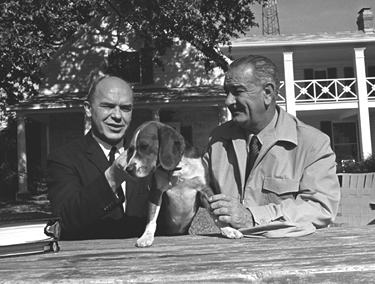Donald “Don” Hornig (1920-2013) was an American chemist.
Hornig was recruited to join the laboratory at Los Alamos in 1944, just one year after receiving his doctorate in physcial chemistry from Harvard University. He designed the electrical switching device for the implosion bomb, which required 32 detonations around a spherical device to occur within less than one millionth of a second.
Hornig was responsible for “babysitting” the bomb overnight prior to the morning of the Trinity test. He recounted the following from that day: “[J. Robert] Oppenheimer was really terribly worried about the fact that the thing was so complicated and so many people knew exactly how it was put together that it would be easy to sabotage. So he thought someone had better baby sit it right up until the moment it was fired. They asked for volunteers and as the youngest guy present, I was selected. I don’t know if it was that I was most expendable or best able to climb a 100-foot tower!”
After the war, Hornig served as Science Adviser to President Lyndon B. Johnson for five years. Soon after he became the President of Brown University. Hornig was married to chemist Lilli Hornig, who also worked on the Manhattan Project at Los Alamos. To listen to his wife’s interview, click here.





